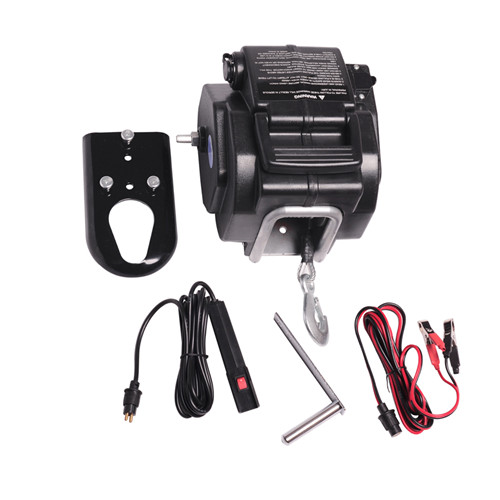How to Use a Boat Winch: A Step-by-Step Guide for Safe and Efficient Operation
Navigating the waters on a boat can be both exhilarating and relaxing, but it's crucial to ensure that all your equipment is used properly to guarantee a safe and enjoyable experience. One essential tool that every boat owner should be familiar with is the boat winch. In this comprehensive guide, we will walk you through the step-by-step process of using a boat winch for safe and efficient operation, ensuring that your boating adventures are nothing short of extraordinary.

Before we dive into the operational details, let's first understand what a boat winch is. A electric boat winch is a mechanical device designed to assist in the lifting, pulling, and securing of heavy loads on a boat. It typically consists of a drum, a crank handle, and a sturdy cable or strap. Boat winches come in various sizes and capacities to accommodate different types of boats and loads.
Step 1: Pre-Use Inspection
Check the Cable or Strap: Before you begin, inspect the cable or strap for any signs of wear, fraying, or damage. It's essential to ensure that the lifting mechanism is in excellent condition to prevent accidents.
Examine the Winch Structure: Inspect the winch for rust, corrosion, or any mechanical issues. Lubricate moving parts if necessary to ensure smooth operation.
Secure Mounting: Verify that the winch is securely mounted to the boat. Loose or unstable mounting could lead to accidents while in use.
Step 2: Attaching the Load
Position the Boat: Park your boat in a safe and stable location. Ensure that the boat is well-balanced to prevent tilting during the loading or unloading process.
Hook Attachment: Attach the hook of the winch cable or strap to a secure point on the load. Make sure the attachment is firm and won't come loose during operation.
Step 3: Operating the Winch
Engage the Brake: If your Electric winch has a brake mechanism, make sure it's engaged before starting. This prevents the load from slipping out of control.
Crank the Handle: Begin cranking the winch handle steadily and smoothly. Avoid rapid or jerky movements that could damage the winch or compromise safety.
Monitor the Load: As you crank, keep a close eye on the load's movement. Make any necessary adjustments to ensure it's being lifted or secured properly.
Step 4: Securing the Load
Double-Check Positioning: Once the load is in the desired position, double-check its placement. Ensure that it's secure and well-balanced.
Disengage the Brake: If applicable, disengage the brake to carefully lower the load. Again, maintain control and monitor the descent closely.
Step 5: Post-Use Maintenance
Clean and Lubricate: After using the winch, clean off any dirt or debris and lubricate the moving parts. This prevents rust and ensures the winch stays in optimal condition.
Inspect for Damage: Regularly inspect the winch for any signs of wear or damage. Address any issues promptly to maintain safe operation.
Conclusion
Using a boat winch doesn't have to be a daunting task. By following this step-by-step guide, you can operate a boat winch with confidence, ensuring the safety of yourself, your passengers, and your equipment. Remember, a well-maintained and properly used winch contributes to hassle-free boating experiences.
评论
发表评论